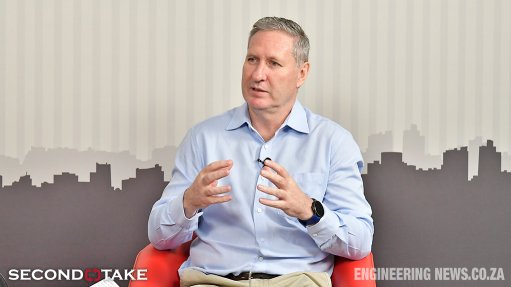Are You Ready to Shape the Future of Regional Connectivity? Join Us as a Speaker at the Transport Evolution Africa Forum & Expo 2025
This article has been supplied.
In an era of rapid globalisation and expanding trade, Africa stands at a critical juncture where the development of transport and logistics infrastructure will significantly shape its economic future. The Transport Evolution Africa Forum & Expo 2025, under the theme “Supercharging Regional Connectivity: Driving Intermodal Transport and Logistics Growth in Africa,” invites industry experts and stakeholders to address key issues, including enhancing the efficiency of goods movement, reducing costs and making Africa’s transport networks more competitive on the global stage.
The 2025, event will focus on the future of Africa’s transport infrastructure and explore how it can drive trade, foster economic development, and improve integration into global markets. As the continent strengthens its position in the global economy, the development of transport and logistics infrastructure will be essential for boosting regional connectivity and enabling more efficient trade flows.
Call for Speakers
Leaders, innovators, and experts in transport, logistics, infrastructure and sustainability are invited to share their insights and propose solutions that will contribute to the modernisation of Africa’s ports, roads, railways, and aviation hubs—key components in building an integrated, efficient transport network. By enhancing regional connectivity, these improvements will streamline the movement of goods across borders, driving trade and economic growth. The primary objective is to develop strategies that unite these transport modes, maximising their collective potential.
Thematic areas of focus include:
The development and investment in transport corridors, which are vital for linking African markets to the global supply chain. Key areas of interest will be providing updates on existing corridors, addressing challenges, and identifying new opportunities, with a strong emphasis on how infrastructure investments can unlock significant trade potential, especially in emerging markets.
Cross-border connectivity plays a pivotal role in strengthening trade relations and fostering regional integration. This includes examining the importance of transnational highways and regional railway networks, as well as the role of regional trade agreements in driving infrastructure development. To ensure progress, it is essential to address regulatory and political challenges, creating an environment where infrastructure projects can succeed.
The challenge of financing transport infrastructure in Africa remains significant. Engaging both the public and private sectors is critical in exploring innovative financial solutions such as public-private partnerships (PPPs), green bonds, and blended finance. These mechanisms can attract private investment, reduce financial risks, and help close the infrastructure funding gap.
Beyond financing, it is crucial to consider the social and economic impacts of transport infrastructure investments. These projects have the potential to create jobs, facilitate trade, and drive inclusive economic growth. Ensuring equitable access to transport services is essential, as infrastructure plays a major role in reducing inequality and improving livelihoods across the continent.
Sustainability has become a global priority, and the adoption of green transport solutions must be fast-tracked. The shift to electric vehicles, renewable energy sources, and energy-efficient infrastructure is critical for reducing Africa’s carbon footprint and ensuring long-term economic resilience. Exploring how these advancements can transform logistics operations and contribute to more sustainable transport systems will be a key focus.
Digital transformation is another important topic, with technologies such as artificial intelligence (AI), blockchain and smart infrastructure offering the potential to optimise logistics networks, enhance transparency and create more efficient, connected systems.
The environmental impact of transport and logistics will be a key focus. Incorporating ESG (environmental, social, and governance) metrics, life cycle assessments (LCA), and climate-resilient infrastructure into development planning is essential for mitigating climate risks and ensuring sustainable development across the continent. These approaches will help build infrastructure that is both future-proof and environmentally responsible.
Comments
Press Office
Announcements
What's On
Subscribe to improve your user experience...
Option 1 (equivalent of R125 a month):
Receive a weekly copy of Creamer Media's Engineering News & Mining Weekly magazine
(print copy for those in South Africa and e-magazine for those outside of South Africa)
Receive daily email newsletters
Access to full search results
Access archive of magazine back copies
Access to Projects in Progress
Access to ONE Research Report of your choice in PDF format
Option 2 (equivalent of R375 a month):
All benefits from Option 1
PLUS
Access to Creamer Media's Research Channel Africa for ALL Research Reports, in PDF format, on various industrial and mining sectors
including Electricity; Water; Energy Transition; Hydrogen; Roads, Rail and Ports; Coal; Gold; Platinum; Battery Metals; etc.
Already a subscriber?
Forgotten your password?
Receive weekly copy of Creamer Media's Engineering News & Mining Weekly magazine (print copy for those in South Africa and e-magazine for those outside of South Africa)
➕
Recieve daily email newsletters
➕
Access to full search results
➕
Access archive of magazine back copies
➕
Access to Projects in Progress
➕
Access to ONE Research Report of your choice in PDF format
RESEARCH CHANNEL AFRICA
R4500 (equivalent of R375 a month)
SUBSCRIBEAll benefits from Option 1
➕
Access to Creamer Media's Research Channel Africa for ALL Research Reports on various industrial and mining sectors, in PDF format, including on:
Electricity
➕
Water
➕
Energy Transition
➕
Hydrogen
➕
Roads, Rail and Ports
➕
Coal
➕
Gold
➕
Platinum
➕
Battery Metals
➕
etc.
Receive all benefits from Option 1 or Option 2 delivered to numerous people at your company
➕
Multiple User names and Passwords for simultaneous log-ins
➕
Intranet integration access to all in your organisation


















